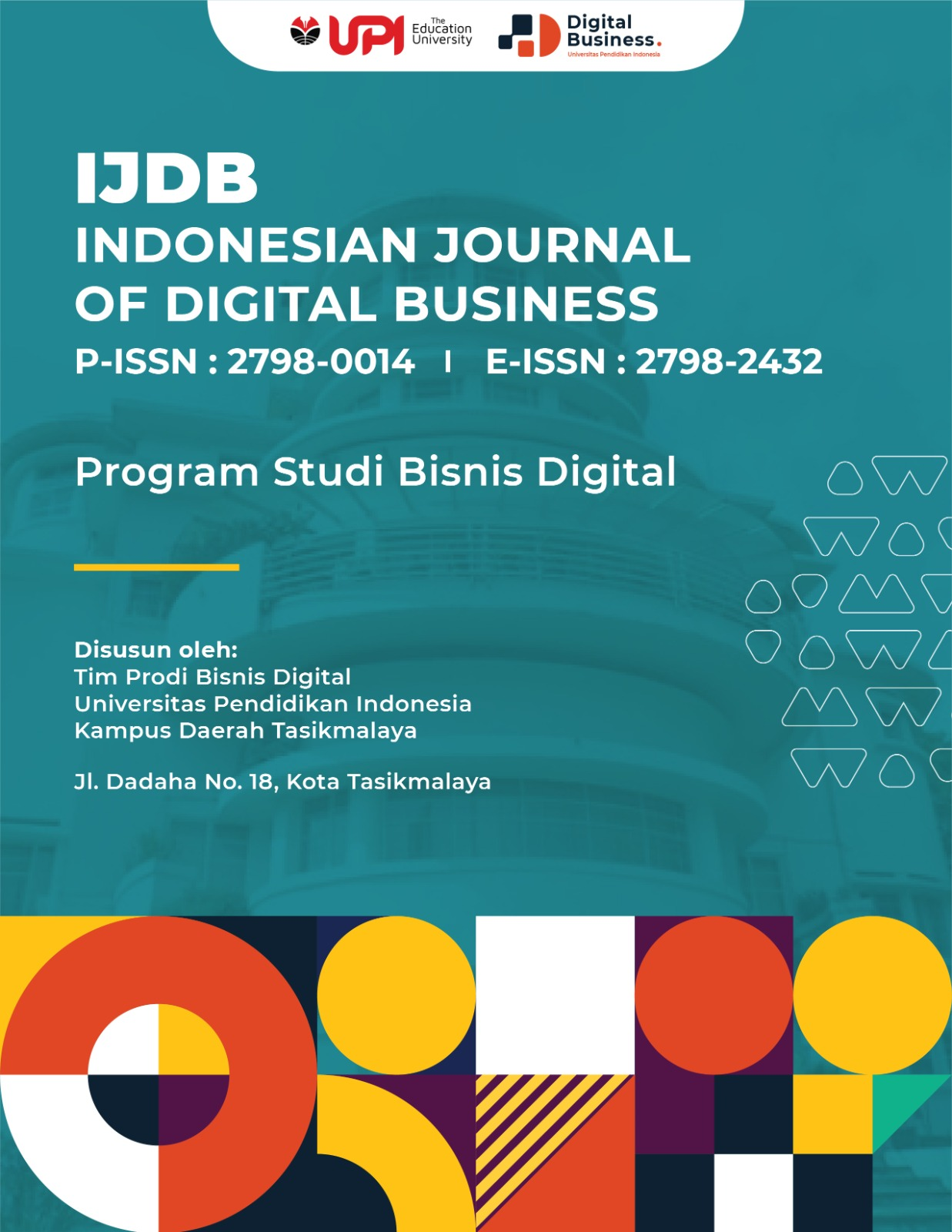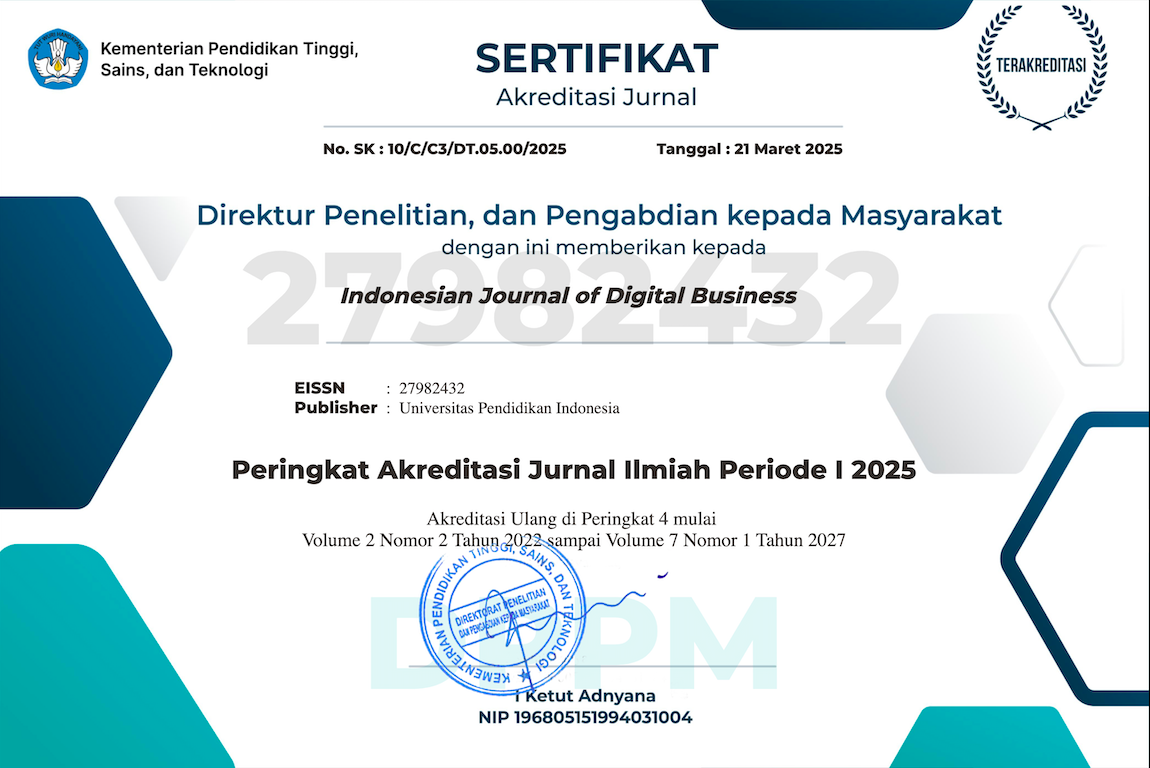Peran Gender dalam Negosiasi Karir: Pendekatan Teori Ekuitas
Abstract
Keywords
Full Text:
PDFReferences
Aberg, J. A., Blankson, J., Marrazzo, J., and Adimora, A. A. (2017). Diversity in the US infectious diseases workforce: challenges for women and underrepresented minorities. The Journal of Infectious Diseases, 216(5), S606-S610.
Adams, J. S. (1965). Injustice in social exchange. Advances in experimental social psychology, 2, 267-299.
Amanatullah, E. T., and Morris, M. W. (2010). Negotiating gender roles: Gender differences in assertive negotiating are mediated by women’s fear of backlash and attenuated when negotiating on behalf of others. Journal of Personality and Social Psychology, 98, 256–267.
Artz, B., Goodall, A. H., and Oswald, A. J. (2018). Do women ask? Industrial Relations, 57, 611–636.
Babcock, L., and Laschever, S. (2003). Women don’t ask: Negotiation and the gender divide. Princeton, NJ: Princeton University Press
Barnard CI. (1938). The Functions of the Executive. Harvard University Press: Boston, MA
Berdahl, J. L., and Moon, S. H. (2013). Workplace mis-treatment of middle-class workers based on sex, parenthood, and caregiving. Journal of Social Issues, 69, 341– 366.
Berle A, Means G. (1932). The Modern Corporation and Private Property, New York: Macmillan.
Berdahl, J. L., and Moon, S. H. (2013). Workplace mistreatment of middle-class workers based on sex, parenthood, and caregiving. Journal of Social Issues, 69, 341– 366.
Bowles, H. R., Babcock, L., and McGinn, K. L. (2005). Constraints and triggers: Situational mechan- ics of gender in negotiation. Journal of Personality and Social Psychology, 89, 951–965.
Bowles, H. R., Babcock, L., and McGinn, K. L. (2005). Constraints and triggers: Situational mechan- ics of gender in negotiation. Journal of Person-ality and Social Psychology, 89, 951–965.
Coff R. W. (1999). How control in humanasset-intensive firms differs from physicalasset- intensive firms: A multi-level approach. Journal of Managerial Issues, 10(4), 389-405.
Cowherd D. M., Levine D. I. (1992). Product quality and pay equity between lower-level employees and top management – An investigation of distributive justice theory. Administrative Science Quarterly, 37(2), 302–320.
Dessler and Gary, (2011). Manajemen sumber daya manusia. Penerbit Indeks, Jakarta.
Drucker P. F. (2007). People and Performance: The Best of Peter Drucker on Management. Boston, MA: Harvard Business School Publishing.
Goldin, C. (2006). The quiet revolution that transformed women’s employment, education, and family. American Economic Review, 96, 1–21.
Greenberg, D., and Landry, E. M. (2011). Negotiating a flexible work arrangement: How women navigate the influence of power and organization- al context. Journal of Organizational Behavior, 32, 1163–1188.
Hornung, S., and Rousseau, D. M. (2008). Creating flexible work arrangements through idiosyncratic deals. Journal of Applied Psychology, 93, 655– 664.
Kelly, E. L., and Kalev, A. (2006). Managing flexible work arrangements in U.S. organizations: Formal- ized discretion or “a right to ask.” Socio-Economic Review, 4, 379–416.
Kelly, E. L., Ammons, S. K., Chermack, K., and Moen, P. (2010). Gendered challenge, gendered re- sponse: Confronting the ideal worker norm in a white-collar organization. Gender & Society, 24, 281–303.
Khoreva, V., and Tenhiälä, A. (2016). Gender differ- ences in reactions to injustice. Journal of Managerial Psychology, 31(4), 790–804. doi:10.1108/jmp-07-2013-0230.
Kray, L. J., and Gelfand, M. J. (2009). Relief versus re- gret: The effect of gender and negotiating norm ambiguity on reactions to having one’s first offer accepted. Social Cognition, 27, 418– 436.
Kugler, K. G., Reif, J. A. M., Kaschner, T., and Brodbeck, F. C. (2018). Gender differences in the initiation of negotiations: A metaanalysis. Psychological Bulletin, 144, 198– 222.
Lax, D. A., and Sebenius, J. K. (1986). The manager as negotiator: Bargaining for cooperation and competitive gain. New York, NY: Free Press.
DOI: https://doi.org/10.17509/ijdb.v2i1.48058
Refbacks
- There are currently no refbacks.
Copyright (c) 2022 Universitas Pendidikan Indonesia (UPI)

This work is licensed under a Creative Commons Attribution-ShareAlike 4.0 International License.
Indonesian Journal of Digital Business is published by Universitas Pendidikan Indonesia (UPI)
and managed by Department of Digital Business
Jl. Dr. Setiabudi No.229, Kota Bandung, Indonesia - 40154
View My Stats





1.png)